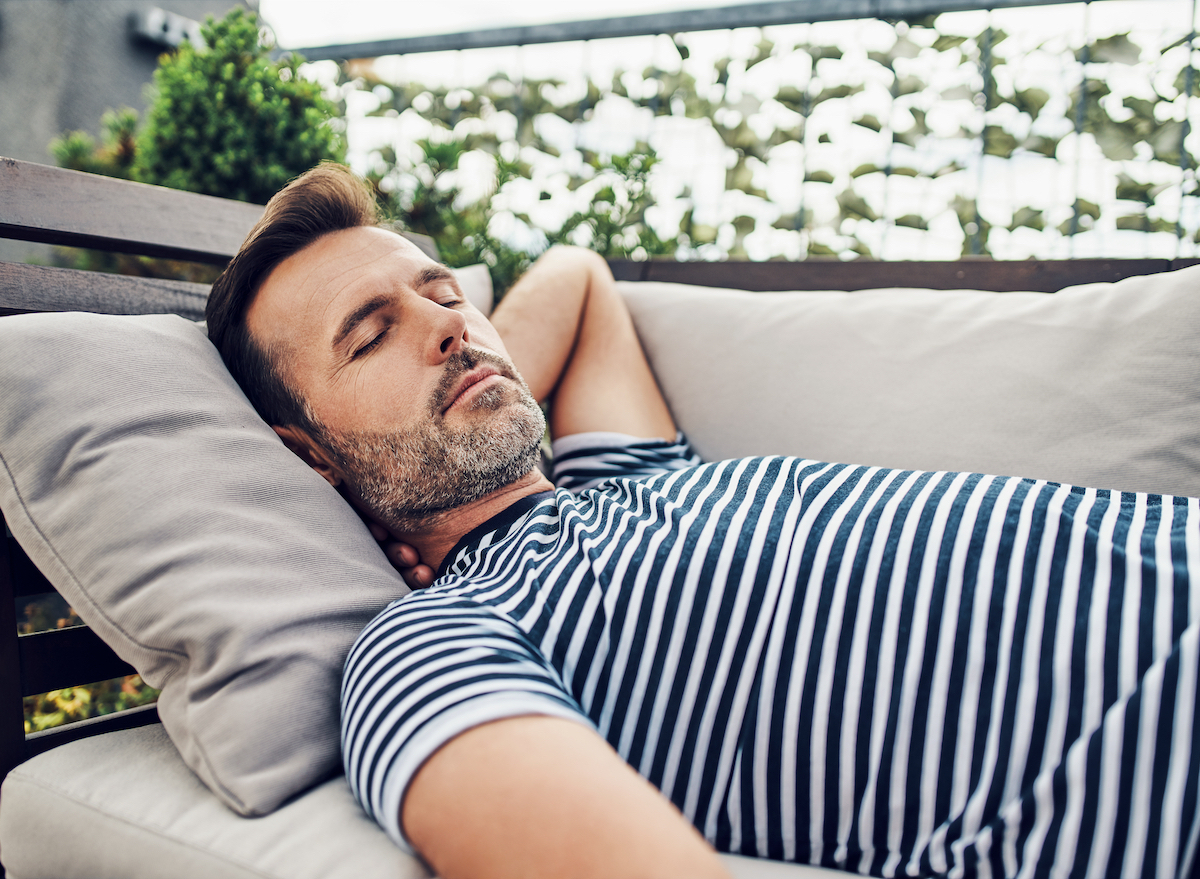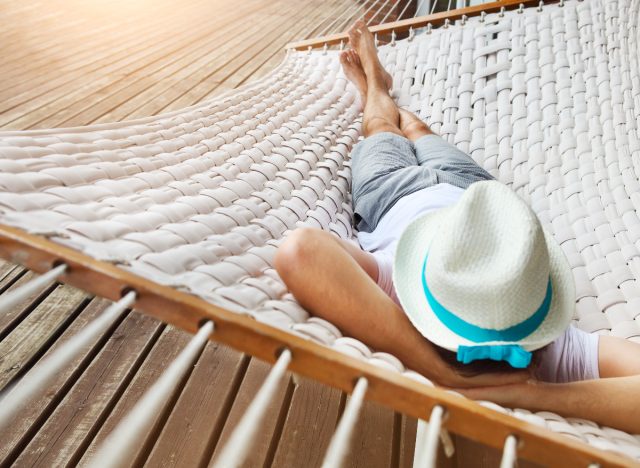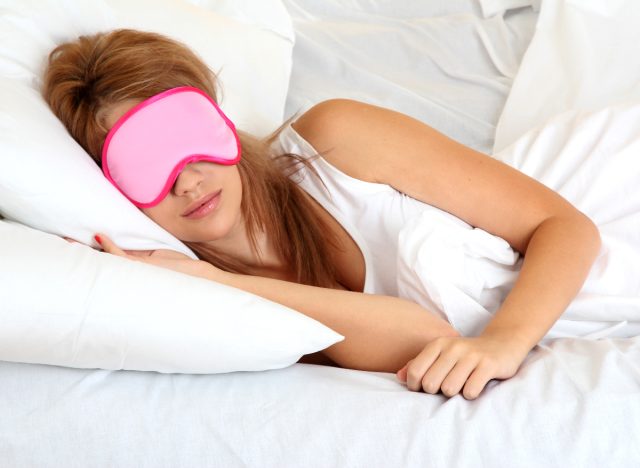The Benefits of Napping Every Day, Expert Reveals

Every cold, rainy, gloomy day should include a cozy nap, don’t you agree? A toasty fire, cup of tea, and soft blanket would certainly complete the moment. But naps aren’t just meant to make afternoons comfy—they’re actually good for your overall health! We spoke with Dr. Peter G. Polos, MD, Ph.D., FCCP, FAASM, sleep medicine specialist and Sleep Number sleep expert, who let us in on the extraordinary benefits of napping every day.
Dr. Polos points out that prior to learning just how beneficial naps are to your well-being, it’s important to be certain your desire to nap is not the result of a medical disorder or a chronic lack of sleep in quantity or quality. If this is the case, it’s important to address the issue ASAP. If there is no constant condition that’s prompting your desire to nap, there are many positive results of lying down for a few old-fashioned afternoon Z’s. Keep reading to learn more about the benefits of napping every day.
Your physical and mental health can benefit from napping every day.

Dr. Polos tells us, “A nap can be beneficial after a night of poor sleep and can make us more alert throughout the day. Physical performance can benefit from napping as well. This is borne out by the practice of a ‘pre-game nap,’ which is most often taken by many professional athletes.”
In addition, Dr. Polos points out that according to a study, another amazing benefit of napping is a decrease in cardiovascular events in people who treated themselves to short naps two to three times each week. Shift workers also benefit from naps, as they endure very inconsistent sleep periods.
Naps should typically be 30 minutes or less to reap the benefits.
Any nap can be refreshing, but Dr. Polos advises they should last no more than 30 minutes. He warns, “A nap that lasts much longer than 30 minutes can result in something we call sleep inertia. This is the groggy sensation one feels upon awakening. It is the result of the brain wanting to continue sleeping to complete a full sleep cycle.” It’s common to feel like this when you wake up out of slow-wave sleep, which takes place approximately 30 minutes into a nap.
Beware, though, because taking a snooze too close to the time you turn in for the night can negatively affect your ability to get to sleep.
Some people may actually reap rewards by taking longer naps, meaning an hour long to 1 1/2 hours. This group consists of shift workers or workers who are “on-call,” Dr. Polos explains. A longer nap time can be amazing when it comes to fighting the fatigue that those professions present.
These habits ensure your naptime will be efficient and peaceful.

In order to help assure your nap will be peaceful, there are a few habits you can incorporate into your routine. To start, be certain your sleep environment is conducive to getting some good shuteye. To help yourself get a calming, more restful nap, sleepers should consider the following:
Keep your room nice and cool.
Keeping your room cool will totally promote a relaxing, successful nap. Dr. Polos tells us, “The actual internal body temperature drops a degree or so, pushing the body towards sleep. Individuals should nap in a cool environment that is 67 to 69 degrees, that is also dark and quiet.”
Cooling sheets are a stellar sleep promoter.
Cooling sheets move any heat away from your body. According to Dr. Polos, “They move heat and humidity away from the body, continuously adapting to help keep you comfortable throughout the night.” He recommends using Sleep Number’s temperature balancing True Temp sheets, as they constantly adapt to maintain your ideal microclimate for an ideal cozy snooze.
Using a bed and a pillow that provide sufficient support is key.
Your head should be comfortable, which means a bed and a pillow that provide sufficient support from your head to your toes. Dr. Polos says, “Proper alignment of the neck, back, and hips promotes sleep and can minimize daytime musculoskeletal complaints. It’s worth looking into a smart bed, like the Sleep Number Climate360™ smart bed, that is adjustable and actively warms and cools sleepers to keep them at their ideal temperature throughout the night.” Consider a pillow designed with removable inserts, like the Sleep Number ComfortFit pillow. This type of pillow allows you to customize your height and support when your sleep needs change.
Take control of your environment.
When you’re in the comfort of your own home, you’re able to control the lighting, the room temperature, and the quality of your bed and pillows. When in a different environment, many or even all of these can vary and may need adjustment. This can cause your sleep quality to be compromised. If you are napping outside of your usual environment, such as on an airplane or at an Airbnb, controlling your environment is essential to achieving a solid nap.
Relaxation techniques and essential oils can help you have a peaceful nap.
Relaxation methods, like listening to calming sounds and practicing breathing techniques, can be super helpful. Essential oils can also put your mind at ease. Everyone is different, so certain methods may work better for some than others.








